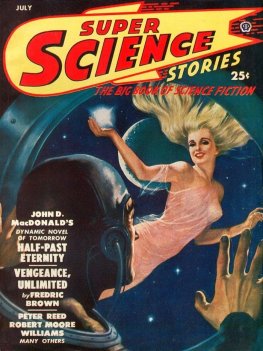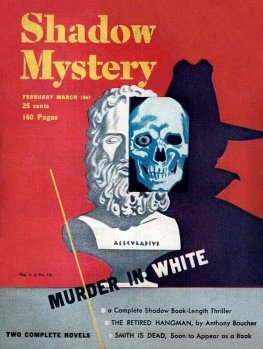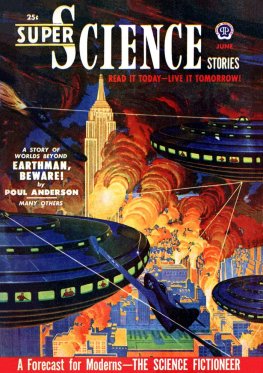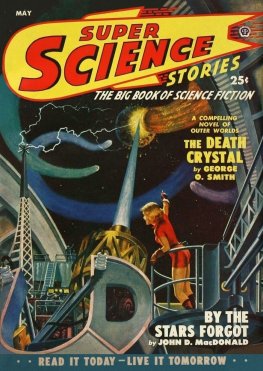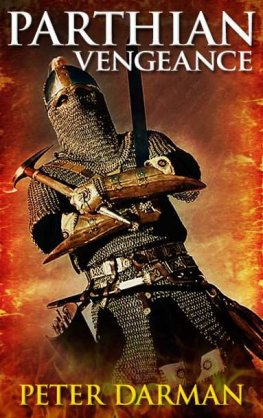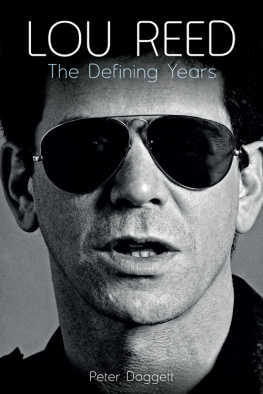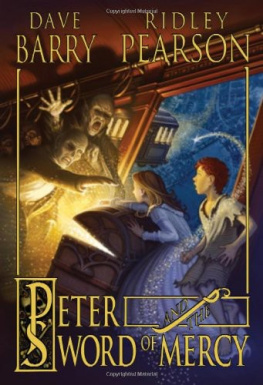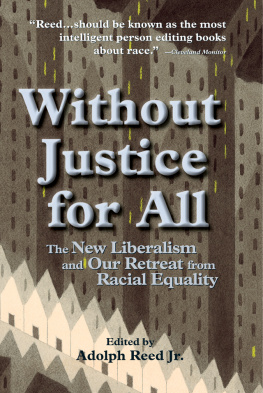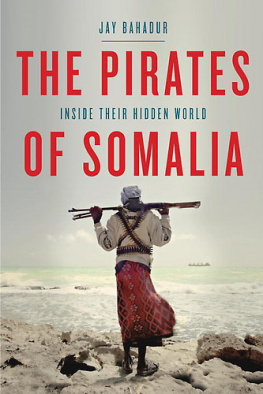Peter Reed - The Bright Flash of Vengeance
Here you can read online Peter Reed - The Bright Flash of Vengeance full text of the book (entire story) in english for free. Download pdf and epub, get meaning, cover and reviews about this ebook. City: New York, year: 1947, publisher: Street & Smith Publications, genre: Adventure. Description of the work, (preface) as well as reviews are available. Best literature library LitArk.com created for fans of good reading and offers a wide selection of genres:
Romance novel
Science fiction
Adventure
Detective
Science
History
Home and family
Prose
Art
Politics
Computer
Non-fiction
Religion
Business
Children
Humor
Choose a favorite category and find really read worthwhile books. Enjoy immersion in the world of imagination, feel the emotions of the characters or learn something new for yourself, make an fascinating discovery.
- Book:The Bright Flash of Vengeance
- Author:
- Publisher:Street & Smith Publications
- Genre:
- Year:1947
- City:New York
- Rating:4 / 5
- Favourites:Add to favourites
- Your mark:
- 80
- 1
- 2
- 3
- 4
- 5
The Bright Flash of Vengeance: summary, description and annotation
We offer to read an annotation, description, summary or preface (depends on what the author of the book "The Bright Flash of Vengeance" wrote himself). If you haven't found the necessary information about the book — write in the comments, we will try to find it.
The Bright Flash of Vengeance — read online for free the complete book (whole text) full work
Below is the text of the book, divided by pages. System saving the place of the last page read, allows you to conveniently read the book "The Bright Flash of Vengeance" online for free, without having to search again every time where you left off. Put a bookmark, and you can go to the page where you finished reading at any time.
Font size:
Interval:
Bookmark:
Peter Reed
The Bright Flash of Vengeance

The British nurses, accustomed as they were to peculiar patients among the native troops, couldnt quite get used to Sar Bahadur. Even among the Gurkhas, who are a small, stocky race, Sar Bahadur was small He stood five feet tall and weighed, at the most, eight stone, before he lost his arm.
Only a handful of patients were left in the little hospital beside the Bailu River in Burma. They were the seriously wounded, who had received their wounds during the mopping up after the Japanese surrender. Sar Bahadur had been expected to die. In the manner of his being wounded he had assured for himself immortality in the legends of his native village in the Nepalese Hills. For generations the wild and frenzied feat of Sar Bahadur would be told in hushed voices. He had sprung out of the brush at a Japanese officer, a tall and heavy man. The flashing swing of the kukhri had been blocked by the officer. They had grappled in the middle of a jungle trail, rolling and straining in the mud. Slowly the officer had begun to exert his superior weight and strength. Somehow, Sar Bahadur had snatched a grenade from the officers belt, pulled the pin, and held the grenade tightly against the small of the officers back until it had exploded. Sar Bahadurs right arm was gone below the elbow. The pure ferocity of his deed and the pride on his face as he was carried for long miles back to the forward aid station, attested to the proud heritage of the Gurkhas. It was a foolish and glorious fragment of warfare.
Sar Bahadur had remained silent and smiling in his hospital bed for a week. At the end of that week, another wounded Gurkha had been placed in the next bed. His first conversation with that new Gurkha kept resounding faintly in Sar Bahadurs ears.
He had looked over at the new patient, and, seeing a man who looked faintly familiar, had said, I am Sar Bahadur of Bhatgaon. Who are you, cousin?
The man had answered, I am Jung Rana, also of Bhatgaon. Is not your home close to the Kathmandu gate?
It is! Do you know my family? It has been five long years of fighting with no word of them. I am eager to return. Jung Rana kept silent for so long that the little Gurkha grew impatient, and worried. Speak, cousin! he demanded.
It is a story hard to tell, for you may not be of the family of which I speak. There was a Gurkha who deserted from the army, a thing of much shame to do. His name is Sehni Bahadur. He is a large man. One year ago he returned at night to Bhatgaon and hid by day. Your father, if it is indeed your family, died three years ago. Only your mother and your two young sisters were left. A young brother went into the army after your father died. When the family of Sehni Bahadur refused to hide him any longer because of the shame to their name, he forced his way into the house of your family. He remained there for a month, because three women could not oppose his will. It is said that screams were heard at night. Then, he departed in the night as silently as he had come. No one had seen him leave. In two days the stench of death came from your house and neighbors went in and found that your mother and your two sisters had died by the kukhri. The family of Sehni Bahadur no longer believe their life to be worth living, but they continue to live in order to be the slaves of the two sons when they return.
For long minutes Sar Bahadur had stared at the cajan ceiling, afraid to ask the details of ages and appearances which would remove the last doubts that it was indeed his own family.
It was then that the health of Sar Bahadur grew worse, that they began to fear that he would die of his wound. For hour upon hour he stared into space, no expression in his narrowed eyes, refusing to eat. The yellowish skin grew taut across his wide cheekbones. He thought of the stories of strange lands which he had intended to tell to the women of his family. The world seemed an empty thing, and he could not track Sehni Bahadur and kill him slowly with the kukhri. How could the long curved blade of the heavy knife be used when arm for the knife was gone? Why should he continue to exist in a world of shame which he could not avenge? What kind of Gurkha would draw the kukhri to slash at women? His thoughts went around and around in the same pattern throughout the long hot days and nights. But he didnt die. Some will to exist in his stringy body defied the death of his spirit, and he ate again and grew stronger, though his eyes never seemed to focus. It was the blank look about his eyes that alarmed the nurses, and yet hr was docile.
One of the things the nurses spoke to the doctor about was the strange and monotonous exercise taken by the little Gurkha. He had gone into the brush and found a heavy club, curved and gnarled, about four feet long. When his strength began to return he would stand for hours in the hot sun in the clearing beside the hospital, and swing the heavy club with his left hand. First a hundred low sweeping strokes, and next a hundred backhand strokes, and next a hundred downward, chopping strokes. The sweat streamed down his face, the stump of his right arm swung out to balance the lurchings of his strengthening body.
After weary weeks of the heavy monotonous work, he was ready for the next phase. He found a long heavy limb, grasped it by the small end and struggled to lift the heavy end free of the ground with the muscles of his wrist and forearm. After a week he could lift it easily, and he began to tie stones to it to make it more difficult. When he returned to the shorter club it seemed far lighter. He began to hack at targets, small knots and blemishes on the trunks of trees. Soon he could deliver a heavy blow from any angle on the precise spot at which he aimed. He got another patient to toss pebbles into the air. The heavy club would swish and the pebble would go flying off into the brush.
At last he felt that he was prepared. All of his body was part of a weapon, a lean hardened weapon, with knots and ridges of flowing muscle along his left arm and shoulder and across his hack. The ways of compensation are mysterious. Without his realizing the fact, his left arm had become stronger, quicker and more accurate than his right arm had ever been. He requested, and received, his kukhri from the hospital storage. It was rusty and dull. He worked over it for hours with the sharpening tool on the back of the scabbard until the blade glistened. The edge was keen enough to slash through a wisp of cloth floating in the air. It was so tempered that he could cut completely through a copper coin without making the slightest nick in the sharp edge. He slung it on his right side, the heavy handle protruding where he could grasp it quickly. After one day of practice he could whisk it out and slash as fast as the flicker of a dancing flame.
It was the intention of the authorities to send Sar Bahadur to Calcutta to receive his honorable discharge, at which time he would be free to return to his native village. He didnt understand the ways of authority, and when he had received his pay at the hospital, he parked his small shoulder bag, strapped on his knife, jammed his wide brimmed hat on his small head and walked away.
He knew, with the instinct of an animal, the general direction in which he wished to go. He followed the banks of the Bailu for a time, then grew weary of forcing and cutting his way through the brush. He motioned at one of the long, flat river canoes drifting by, and the white-turbanned boatman skimmed it over to the bank. Sar Bahadur held up a silver rupee and motioned down the river. The boatman grinned and shoved the boat near to the bank. Sar Bahadur climbed gingerly into the fragile thing, and in a few seconds they were gliding down the river. The boatman stood on his right leg on the stem of the boat. With his left leg wrapped around and over the long oar, and his two hands on the haft, he swirled the oar back and forth in the water with a sculling motion, his weight balanced against the resistance of the flat blade of the oar against the water.
Font size:
Interval:
Bookmark:
Similar books «The Bright Flash of Vengeance»
Look at similar books to The Bright Flash of Vengeance. We have selected literature similar in name and meaning in the hope of providing readers with more options to find new, interesting, not yet read works.
Discussion, reviews of the book The Bright Flash of Vengeance and just readers' own opinions. Leave your comments, write what you think about the work, its meaning or the main characters. Specify what exactly you liked and what you didn't like, and why you think so.

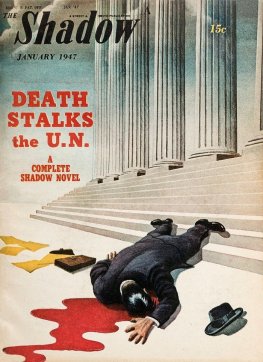
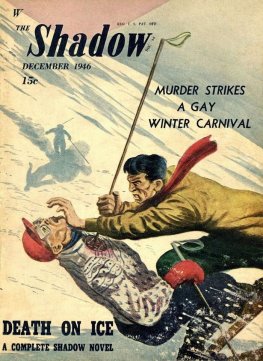
![Peter Reed - The Thunder Road [story]](/uploads/posts/book/924857/thumbs/peter-reed-the-thunder-road-story.jpg)
